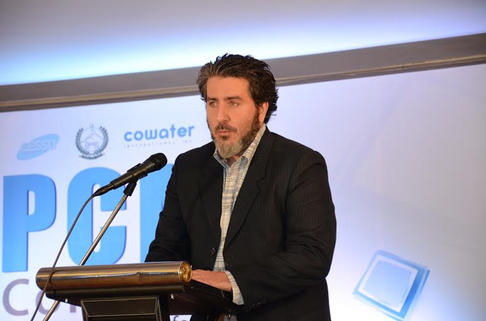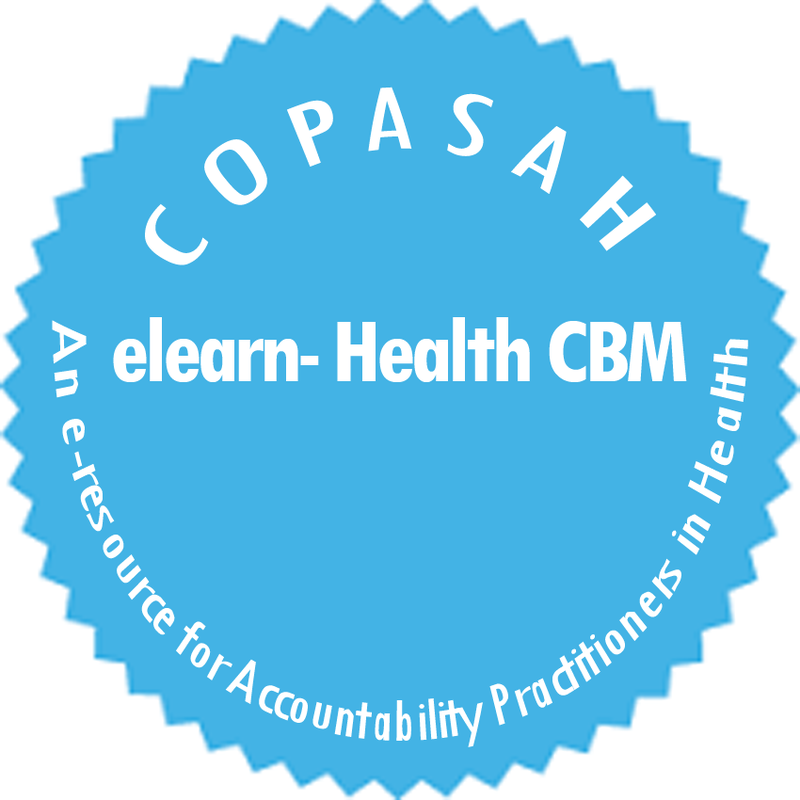
|
|
Paving the Way for Primary Care Management Committees through Citizen Engagement
|
Gulbaz Ali Khan, Syed ishfaq-UR-Rehman
|
|
Background
Citizen Engagement for Social Service Delivery (CESSD) centers on strengthening communities towards their engagement with the government in order to improve social services. CESSD centralizes itself around building community organization as a primary and preliminary step towards citizen engagement with the government. Local communities are organised, capacitated and consolidated as Social Service Committees (SSCs) to achieve gender responsiveness and social accountability. The SCC has similar core objectives. These committees are government mandated community bodies that are recognized in different social sectors, some of which are Parent Teacher Councils (PTCs) in Education Sector; Primary Care Management Committees (PCMCs) in Health Sector and Water User Committees (WUCs) in Water Sector. These organized communities have evolved through different stages from formation of the committees to now achieving maturity as independent community institutions. The Primary Care Management Committee (PCMC) is the Health Department’s community participation mechanism, elaborated in standard 1.1 of Khyber Pakhtunkhawa Primary Health Care Standards (Standard 1.1). |
Jean Frederic, Project Field Manager, CESSD, Khyber Pakhtunkhwa, Pakistan sharing his thought on accountability
|
Realizing the critical role of the community in improving service delivery for the people, the Health Department Khyber Pakhtunkhwa (KP) has institutionalized community participation by including Standard 1.1 as approved standards for primary level health facilities. At the heart of Standard 1.1,lies the objective that every health facility has to constitute Primary Care Management Committees to actively involve itself in the processes of community planning and decision making aimed at improving the health facilities. These committees are entrusted with important and key responsibilities of maintaining the efficacy of Primary Health Care. It is envisaged that the PCMC will not only manage the resource utilization but also take major decisions that involve planning, resource generation, monitoring and improvement in service delivery.
CESSD has provided support in the formation of PCMCs in more than 210 primary health facilities in five selected health districts of Khyber Pakhtunkhwa (KP). After the formation of PCMCs, CESSD builds the capacity of PCMCs through series of trainings in relevant disciplines including role and responsibility of PCMCs, Primary Health Care Standards, social accountability and gender mainstreaming, facility development plan and financial management. Additional areas include orientation and training programmes on facility development plans, adult literacy centers, and exclusive trainings for women members of PCMCs and sub committees etc. CESSD also assists PCMCs in linkages development through synergy workshops. Other areas include demonstration of classic and innovative social accountability tools and methods for supporting good governance.
The Concept
PCMCs have been established in more than two hundred primary health care facilities. Some guidelines have been developed for PCMCs that steer them in their operation and activities. Monitoring mechanisms are developed for monitoring the performance of the service providers under PCMCs. Training, development of resource materials is available for the capacity development. It is vital to raise the visibility of PCMCs to work around the challenges in order to move forward. Keeping this vein in thought, CESSD convened a PCMC Conference on March 19, 2015 in Islamabad, titled ‘Paving the Way for PCMCs’ at the provincial level to encourage PCMCs to overcome challenges at the policy level.
Objectives
The conference was organised to provide increased visibility to PCMCs. It aimed to examine the key challenges and offer recommendations that emerged during the provincial dialogue.
The forum saw a congregation of people from diverse backgrounds including people from communities, district and provincial governments, representatives of relevant government and non-government organizations under one roof. The event witnessed rich discussions on the theme of PCMCs; its achievement so far, challenges ahead and ways to smoothen the way for PCMCs. The participants included representatives of PCMCs and PCMC Networks, non-government partner organizations, policy makers; Government of Khyber Pakhtunkhwa representatives, CESSD colleagues and district and facility level government officials.
Proceedings
The conference was divided into two sessions: the inaugural session and technical dialogue. The inaugural session opened the floor to discuss the broader objectives of the Conference.
Dr. Qaisar Deputy Director Reproductive Health and Nutrition, Health Department addressed the conference. He lauded the efforts of CESSD’s in health sector. He acknowledged that due to the efforts of the PCMCs initiated by CESSD, the communities can access quality health services at grassroot level. He endorsed the expansion and scaling up of the CESSD Health model across KP province for better interests of the community. He requested the Department for Foreign Affair and Trade (DFAT) and other donors to fund CESSD interventions for the whole of KP.
Technical Sessions
Different technical sessions facilitated the dialogue on PCMCs from different regions.
The theme of the Government and Citizen’s voices panel, session was titled as “Effectiveness of Development Interventions through community participation”. During this session, government and community representatives from the five health districts shared their experiences of best practices derived from the field.
CESSD has provided support in the formation of PCMCs in more than 210 primary health facilities in five selected health districts of Khyber Pakhtunkhwa (KP). After the formation of PCMCs, CESSD builds the capacity of PCMCs through series of trainings in relevant disciplines including role and responsibility of PCMCs, Primary Health Care Standards, social accountability and gender mainstreaming, facility development plan and financial management. Additional areas include orientation and training programmes on facility development plans, adult literacy centers, and exclusive trainings for women members of PCMCs and sub committees etc. CESSD also assists PCMCs in linkages development through synergy workshops. Other areas include demonstration of classic and innovative social accountability tools and methods for supporting good governance.
The Concept
PCMCs have been established in more than two hundred primary health care facilities. Some guidelines have been developed for PCMCs that steer them in their operation and activities. Monitoring mechanisms are developed for monitoring the performance of the service providers under PCMCs. Training, development of resource materials is available for the capacity development. It is vital to raise the visibility of PCMCs to work around the challenges in order to move forward. Keeping this vein in thought, CESSD convened a PCMC Conference on March 19, 2015 in Islamabad, titled ‘Paving the Way for PCMCs’ at the provincial level to encourage PCMCs to overcome challenges at the policy level.
Objectives
The conference was organised to provide increased visibility to PCMCs. It aimed to examine the key challenges and offer recommendations that emerged during the provincial dialogue.
The forum saw a congregation of people from diverse backgrounds including people from communities, district and provincial governments, representatives of relevant government and non-government organizations under one roof. The event witnessed rich discussions on the theme of PCMCs; its achievement so far, challenges ahead and ways to smoothen the way for PCMCs. The participants included representatives of PCMCs and PCMC Networks, non-government partner organizations, policy makers; Government of Khyber Pakhtunkhwa representatives, CESSD colleagues and district and facility level government officials.
Proceedings
The conference was divided into two sessions: the inaugural session and technical dialogue. The inaugural session opened the floor to discuss the broader objectives of the Conference.
Dr. Qaisar Deputy Director Reproductive Health and Nutrition, Health Department addressed the conference. He lauded the efforts of CESSD’s in health sector. He acknowledged that due to the efforts of the PCMCs initiated by CESSD, the communities can access quality health services at grassroot level. He endorsed the expansion and scaling up of the CESSD Health model across KP province for better interests of the community. He requested the Department for Foreign Affair and Trade (DFAT) and other donors to fund CESSD interventions for the whole of KP.
Technical Sessions
Different technical sessions facilitated the dialogue on PCMCs from different regions.
The theme of the Government and Citizen’s voices panel, session was titled as “Effectiveness of Development Interventions through community participation”. During this session, government and community representatives from the five health districts shared their experiences of best practices derived from the field.
|
Snapshot of PCMC Conference
|
Jahangir Khan Mughal, Chairperson PCMC BHU Pakha Ghulam representing Peshawar district shared his presentation on “History/Background of the PCMC”. He highlighted the achievements made by CESSD through PCMC’s apart from the challenges faced at grassroots level.
Saeda Feiroz, Chairperson PCMC BHU Mandani and Member PCMC District Networking Committee Charsadda, representing Charsadda spoke about “Gender Mainstreaming”. She reflected upon her role as a women leader working for the improvement of health services in her commnuntity where access to community health service for all and women in particular was important to integrate a pluralistic approach to heath. Saeeda explained her mission as a women leader was to enhance gender mainstreaming at all levels of health care |
BHU Badrashi- Nawshehra was represented by Naila Naz. Ms Naila is the Member of PCMC BHU Badrashi and Vice Chairperson, District Networking Committee, Nowsher. She highlighted the key acquirements for the betterment of community based health services through the PCMCs.
Shahab Uddin, Chairperson PCMC RHC Bilitang, Chairperson District Networking Committee, representing Kohat district outlined the theme of “Social Accountability”. He elaborated on the importance of using social accountability tools such as the Public Information Boards (PIBs) and Complaint Management System (CMS) to enhance transparency, exacting public accountability, raising health user voices and opening up government towards citizen demands.
Dr. Fazal Akbar, Medical Officer RHC, General Secretary PCMC, RHC Shetyal, highlighted that the Facility Development Plan (FDP) was an effective tool for facility development and services improvement through community participation.
A group work was conducted where the participants were divided into four groups representing the community, CESSD and government representatives to provide the participants some practical inputs. The groups worked on the following themes:
The conference proved to be an interactive platform for community leaders to express and share their experience to build a wider understanding of the subject and help replicate the models across the province. Many grassroot stories and local experiences were shared by the stakeholders including donors, government representatives, CSOs and communities. The issues of gender mainstreaming, social accountability, capacity development and networking committees were discussed in detail.
It discerned from the dialogues that District Network Committees (DNCs) can collectively raise the community voices for greater PCMC visibility, adequate funding and appropriate capacity development needs. The DNCs decided to collate the findings to the forum at the provincial level. These findings would be rooted to legislatures and decision makers to impact policy level changes. It was mooted that the PCMC funding and institutionalized capacity development effort would be mobilized through the legislatures. The DNCs decided to approach their respective MPAs/MNAs, and Administrative Secretary to create civil society pressure for concrete actions on the PCMC actualization. It was discussed that specifically a committee of DNCs will meet the Minister and Secretary to remove concerns over the financial delegations to PCMCs. It was also deliberated that initiatives such as of developing a framework of partnership amongst all the stakeholders to institutionalize social mobilization and trainings in the health services will be undertaken. Provincial Health Services Academy (PHSA) and its affiliates will be considered as prime training institution for delivering trainings to the PCMCs.
Way Forward
It was decided that collaborated efforts with all stakeholders is a growing need requiring mobilization of resources to help in the full integration of PCMCs into primary health care services. Though, PCMCs is now a notified body health department, one sees a reluctance and resistance within the government service delivery system. This was jointly agreed upon that DNCs (in conjunction to existing efforts) will create awareness and enable the process of engagement of both government departments and legislative members to impact legislature.donors and CSOs will also provide concrete support to DNCs for effective mobilization and advocacy. The donors showed interest in the replication of PCMC model in Federally Administrated Tribal Area (FATA) for improving primary health care services. In this regard, CESSD will provide a detailed presentation on PCMC mechanics to interested donors and provide documentation support including PCMC Guidebook.
Shahab Uddin, Chairperson PCMC RHC Bilitang, Chairperson District Networking Committee, representing Kohat district outlined the theme of “Social Accountability”. He elaborated on the importance of using social accountability tools such as the Public Information Boards (PIBs) and Complaint Management System (CMS) to enhance transparency, exacting public accountability, raising health user voices and opening up government towards citizen demands.
Dr. Fazal Akbar, Medical Officer RHC, General Secretary PCMC, RHC Shetyal, highlighted that the Facility Development Plan (FDP) was an effective tool for facility development and services improvement through community participation.
A group work was conducted where the participants were divided into four groups representing the community, CESSD and government representatives to provide the participants some practical inputs. The groups worked on the following themes:
- Financial delegation to PCMCs and provision of regular funds to PCMCs on the analogy of PTCs.
- Making available a permanent human resource team within DOH for social mobilization of PCMCs at district level.
- Building a sustainable mechanism for capacity development of PCMCs
- Increasing ownership and better collaboration between stakeholders around PCMCs.
The conference proved to be an interactive platform for community leaders to express and share their experience to build a wider understanding of the subject and help replicate the models across the province. Many grassroot stories and local experiences were shared by the stakeholders including donors, government representatives, CSOs and communities. The issues of gender mainstreaming, social accountability, capacity development and networking committees were discussed in detail.
It discerned from the dialogues that District Network Committees (DNCs) can collectively raise the community voices for greater PCMC visibility, adequate funding and appropriate capacity development needs. The DNCs decided to collate the findings to the forum at the provincial level. These findings would be rooted to legislatures and decision makers to impact policy level changes. It was mooted that the PCMC funding and institutionalized capacity development effort would be mobilized through the legislatures. The DNCs decided to approach their respective MPAs/MNAs, and Administrative Secretary to create civil society pressure for concrete actions on the PCMC actualization. It was discussed that specifically a committee of DNCs will meet the Minister and Secretary to remove concerns over the financial delegations to PCMCs. It was also deliberated that initiatives such as of developing a framework of partnership amongst all the stakeholders to institutionalize social mobilization and trainings in the health services will be undertaken. Provincial Health Services Academy (PHSA) and its affiliates will be considered as prime training institution for delivering trainings to the PCMCs.
Way Forward
It was decided that collaborated efforts with all stakeholders is a growing need requiring mobilization of resources to help in the full integration of PCMCs into primary health care services. Though, PCMCs is now a notified body health department, one sees a reluctance and resistance within the government service delivery system. This was jointly agreed upon that DNCs (in conjunction to existing efforts) will create awareness and enable the process of engagement of both government departments and legislative members to impact legislature.donors and CSOs will also provide concrete support to DNCs for effective mobilization and advocacy. The donors showed interest in the replication of PCMC model in Federally Administrated Tribal Area (FATA) for improving primary health care services. In this regard, CESSD will provide a detailed presentation on PCMC mechanics to interested donors and provide documentation support including PCMC Guidebook.
|
|
ABOUT AUTHORS
Gulbaz Ali Khan, is Senior Manager- Governance and Capacity Development, Citizen Engagement for Social Service Delivery (CESSD), Khyber Pakhtunkhwa, Pakistan. He holds a masters degree in Economic Development & Policy Analysis from University of Nottingham, UK. He is a Social Accountability Practitioner in the primary education, basic health and rural drinking water sectors in Pakistan. He is the author of “Pro- Poor Growth: Cross Country Analysis Focusing on South Asia.” He conducts trainings, delivers lectures and writes in English newspapers on social accountability, budget analysis and transparency and local governance.
Muddassir Ahmad is a development expert with more than fourteen years of experience in the area of community driven development. He is currently managing project of DFAT (AusAID) for improving service delivery by government institutions as Provincial Program Manager Khyber Pakhtunkhwa.
Gulbaz Ali Khan, is Senior Manager- Governance and Capacity Development, Citizen Engagement for Social Service Delivery (CESSD), Khyber Pakhtunkhwa, Pakistan. He holds a masters degree in Economic Development & Policy Analysis from University of Nottingham, UK. He is a Social Accountability Practitioner in the primary education, basic health and rural drinking water sectors in Pakistan. He is the author of “Pro- Poor Growth: Cross Country Analysis Focusing on South Asia.” He conducts trainings, delivers lectures and writes in English newspapers on social accountability, budget analysis and transparency and local governance.
Muddassir Ahmad is a development expert with more than fourteen years of experience in the area of community driven development. He is currently managing project of DFAT (AusAID) for improving service delivery by government institutions as Provincial Program Manager Khyber Pakhtunkhwa.









